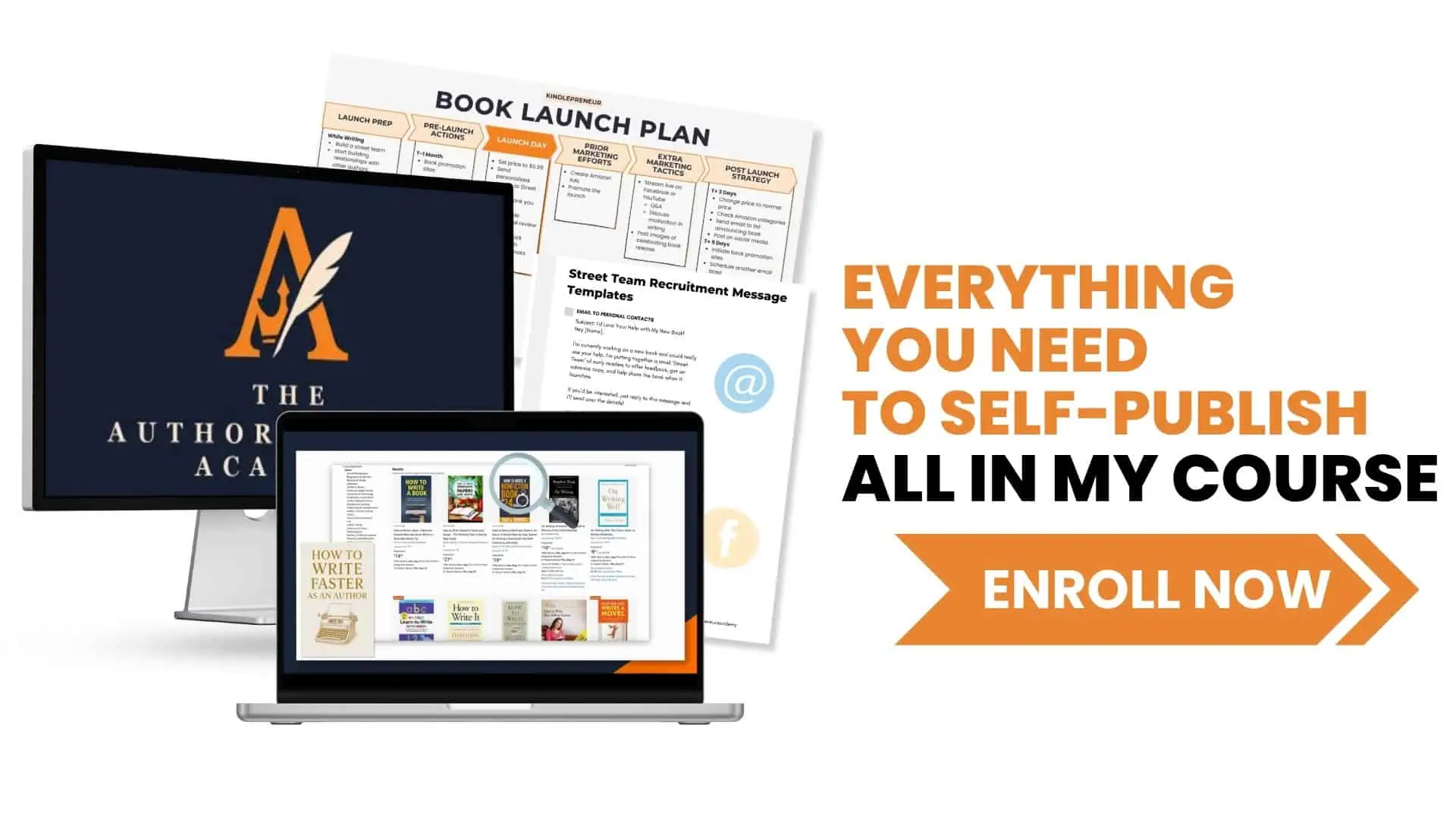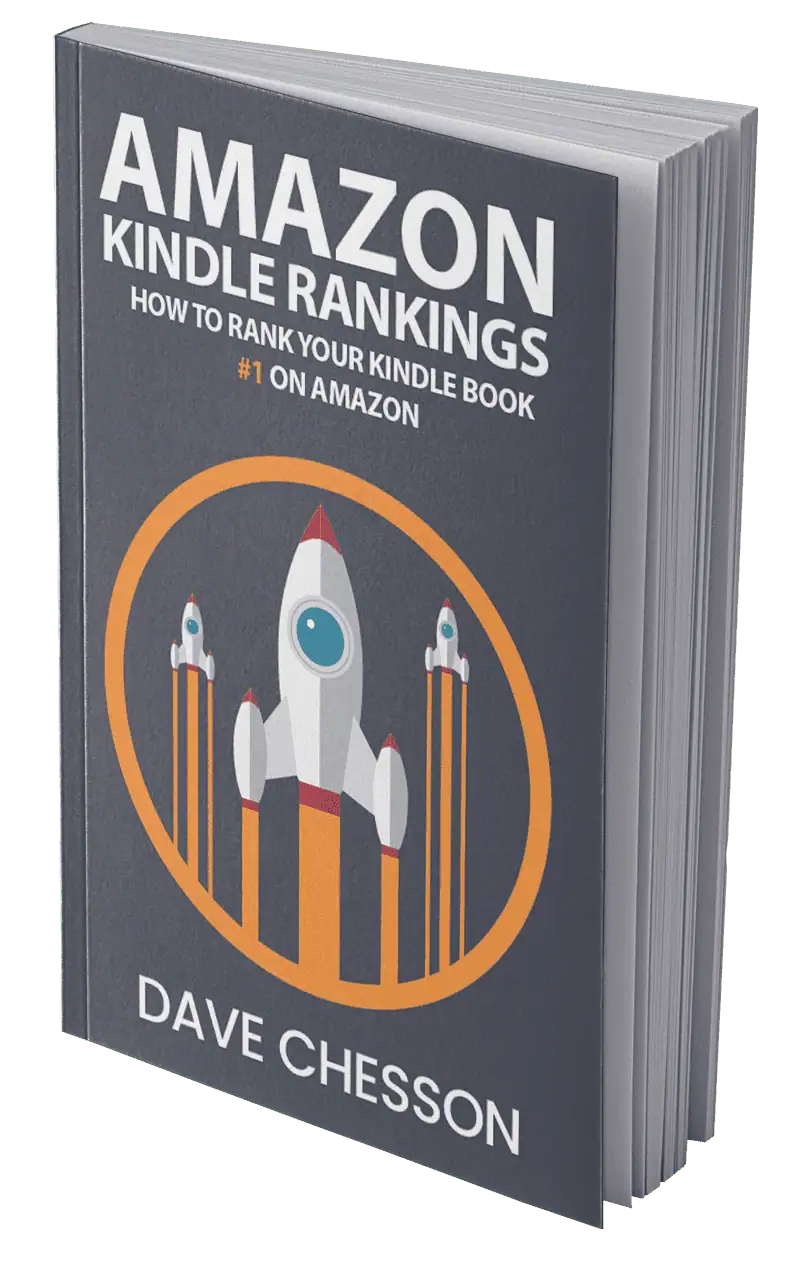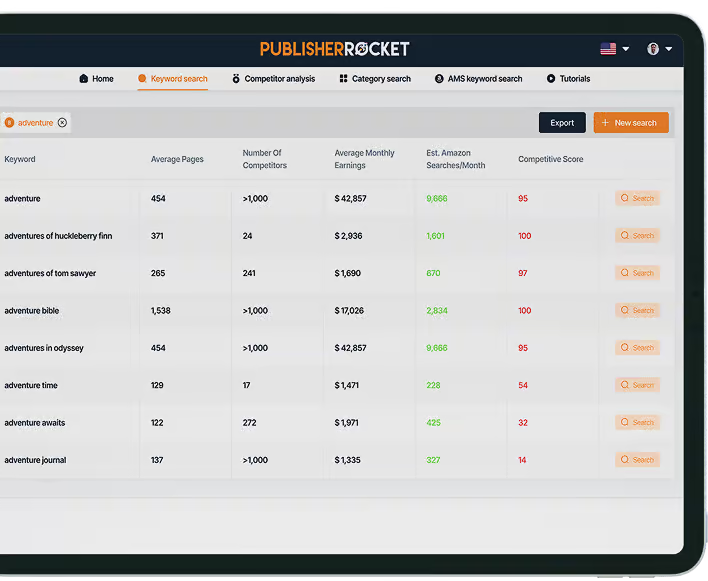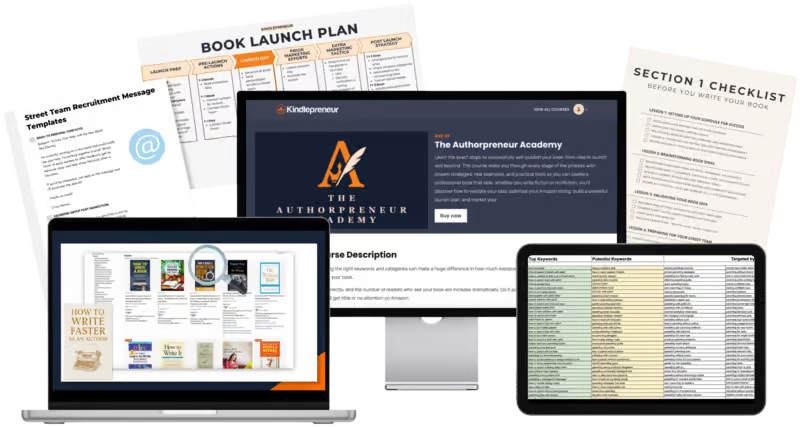Getting your book in front of readers across the globe is one of the fastest ways to grow your audience and increase sales.
The challenge? Unless you’re fluent in multiple languages, you’ll need help getting your book translated properly… and a poor translation can do more harm than good.
In this guide, I’ll walk you through everything you need to know about finding the right translator for your book and your budget. A high-quality translation can open doors to new, profitable markets. A sloppy one can damage your reputation and cost you potential sales.
Here’s what we’ll cover:
- Smart strategies to identify the best international markets for your book
- The pros and cons of different translation services
- Tips for working effectively with freelance translators
- How to track, tweak, and improve after your translated book goes live
And if you haven’t already, be sure to read my article on Amazon’s international marketplaces and how to optimize your book for each one.
Together, that article and this one will give you the blueprint you need to take your book worldwide.
Choosing a Language for Your Book
So, which market should you target first?
There isn’t one “winner” that fits every book. Markets rise and cool over time — and language, genre, and your own sales data matter far more than headlines. Instead of guessing, use your signals:
- Check your KDP Reports. Look at sales and KU reads by marketplace. If you’re already seeing activity in DE, FR, ES, IT, CA, or AU, that’s your first clue to lean in there.
- Use a universal link to spot interest. Create a free BookLinker URL for your book and share it in promos or on social. The click breakdown shows where readers are coming from even if they don’t purchase, which is handy demand intel before you invest in a translation.
- Match language + marketplace on purpose. If you do publish a translated edition, upload it as its own book and set the Primary Marketplace to the country that matches the language (e.g., German → Amazon.de). Write the title, description, and keywords in that language so Amazon knows who it’s for.
Better Keywords & Categories Fast
See why over 47,000+ authors and publishing companies use and love Rocket to help them sell more books.
Get Publisher Rocket Now!Translation Options: Services vs. Freelancers
Broadly speaking, you have two options when it comes to translating your book for your chosen foreign market–either find an individual translator to work on your project, or use a service/company instead.
There are pros and cons to each option, so allow me to now show you some of the translation companies which are out there, and also offer some tips and guidance on finding an individual translator.
1. Book Translation Services
Ulatus
Ulatus book translation services are an end-to-end solution – from translation to book production. You write a book in a language and they will give you a print-ready and digital version in any language you desire. They work with all genres including academic textbooks.
Babelcube
Babelcube has no upfront costs but will take a flat 20% of royalties. It currently supports the following 15 languages:
- Afrikaans
- Dutch
- English
- Finnish
- French
- German
- Greek
- Hindi
- Irish
- Italian
- Japanese
- Norwegian
- Portuguese
- Spanish
- Swedish
Guildhawk (formerly Today Translations)
Guildhawk (fka Today Translations) is a London-based translation company with some pretty impressive testimonials–Microsoft and London Metropolitan University attest to their services.
Guildhawk does not make their prices public, but instead, offer a free quote for your project. Expect to pay a premium price for a premium service.
Auerbach International
Auerbach has an impressive track record with 30 years of experience translating 2 billion words and across 120 languages.
Like Today Translations, Auerbach does not make their prices public, but also offers a free quote for your project. Expect to pay a premium price for a premium service.
Auerbach quotes each project individually and, unlike others, they use Master's-level, professional, native-speaking translators with expertise in your subject and a proven process that guarantees accuracy, ideal for translations of nonfiction business books, biographies, and technical works. (Auerbach does not yet offer literary translations.)
First Edition Translations
This is a UK-based service with a host of credentials–for example, First Edition has worked with the United Nations and is a member of a Chartered Institute.
First Edition specializes in translating nonfiction books. They list their areas of expertise as the following: cookery books, wines and spirits, guidebooks, children’s books, art catalogs, architecture and urban design, travel books, gardening, crafts, eBooks, phrasebooks and dictionaries, educational material, and periodicals.
First Edition doesn't have a price list, but they do offer a free quote service. Their site has a live chat function, so you can get answers to any queries you may have.
Interestingly, First Edition also offers a service by which certain books are ‘Americanized’. Maybe you are thinking about translating a book from a non-English language for the American market? If so, First Edition could help you to do so in a natural-sounding way.
Mincor Book Translation
Mincor boasts of having not only native translators to work on your project, but also translators who are familiar with the conventions for books within each market. They use the example that dialogue is marked with “ “ in English but _ _ in Spanish. I didn’t know that–apparently Mincor does!
Mincor offers a custom quote with regards to pricing for your project, but dig a little deeper and you will find the following price list:
- Machine Translation (software only)–$0.03 per word
- Machine Translation with Human Editing–$0.08 per word
- Human Translation and Editing–$0.11 – $0.15 per word
Espresso Translations
Espresso Translations has an impressive client list. They've worked with the likes of Amazon, Ernst & Young, Universal, and many more. According to their site, all translators are highly qualified with over 5 years of experience in the translation industry.
Espresso doesn't have a visible price list, but they do have a specific statement that translation services should be affordable. They also have a simple online form to fill out in order to receive a custom quote.
As you can see from the above, there is a wide range of companies willing to translate your book for you. It can be a little overwhelming to choose the right option, so please keep in mind the following when you are undergoing your process of consideration:
- What will be the total price? Is this guaranteed or could there end up being extra charges?
- How much input will you have in the process? Do you get to reject a translation or provide feedback?
- Go over the fine print and make sure you will have the full rights to your translation
- Does the service you use have a track record of translating similar works to your own?
- Will you have a direct point of contact, either the translator or a representative of the translator?
- What’s the time-frame for translation? Is this guaranteed?
- What’s the reputation of the service? Can you find people saying good things about it outside of the service’s own website?
- How does the translation cost fit into your financial projections for the book?
- How many copies of the foreign book will you have to sell to make a profit on the translation? Is this a realistic target as indicated by your foreign market research?
As you can see, translating a book is not something you should rush into.
Ultimately, when considering whether to hire a translation service with an upfront cost you need to logically evaluate your sales projections and weigh up which option makes financial sense.
2. Freelance Translators
The other main option when it comes to translating your book is to find and hire an individual, freelance translator, rather than hiring the services of a translation company.
Let’s take a long look at some of your options for finding individual freelance translators, the best practice for using each option, and finally, some general guidance and advice when choosing the option of a freelance translator.
 Reedsy
Reedsy
Reedsy is a marketplace of talented freelancers in a variety of niches. From writing and editing to translation, marketing, and design, Reedsy has attracted professionals who are serious about providing quality products and services to their clients. Even better, Reedsy has an awesome selection of book translators who are in the top 5% of the industry. Most of the translators on Reedsy will charge between $0.08 and $0.12 per word for a clean translation that's ready for you to publish.
 Fiverr
Fiverr
If you are at the point in your writing career where you are thinking of having your book translated, you probably are no stranger to Fiverr. As expected from working with individual service providers, you will typically come across people offering translation to and from a single language, with the more common languages being widely represented. There are a lot of options for Spanish or French, for example.
The going rate for Fiverr isn't always $5. Many of these services are pretty expensive, and you'll have to rely on the previous experiences and reviews of others who sought translations when selecting a provider. A word of warning: some of the translation gigs on Fiverr aren't well-reviewed. It’s absolutely vital to find someone with a consistent track record of good reviews.
 Upwork
Upwork
Upwork is a freelancer marketplace that collects freelancers who are hungry to please and to provide great work. Over 3000 translation projects are hiring on Upwork as I write. That’s in addition to any translation projects currently in progress on the site. This level of activity is a clear indication that Upwork is at least worthy of your consideration.Bear in mind, however, that Upwork's freelancers aren't handpicked by the Upwork management team. Anyone can sign up for Upwork and apply to a job you post. It will be up to you to discern whether the freelancer is qualified enough to work on your book translation.
I've also started gathering individual translators and agencies into one big list to help with your search. Check them and their sites out below. Keep in mind that I haven't used these services myself.
| Translator | Specialties |
|---|---|
| Barbara Ostrop | Women's Fiction, Romance, Mystery and Crime, Thriller and Suspense, Historical Fiction, Fantasy |
| Norbert Stöbe | Action & Adventure, Historical Fiction, Literary Fiction, Mystery & Crime, Science Fiction,Thriller & Suspense |
How to Hire An Upwork Translator
It’s a virtual certainty that your Upwork job will get a variety of bids. This isn’t the challenge. Finding the right person for the right price is where you need to be cautious. These tips will help you to go about the Upwork hiring process in the right way. Consider the following when evaluating any Upwork bidder:
- Do they have a track record of delivering similar types of work? There are rare situations where you may want to gamble on someone without a review history, but generally speaking, you want to see multiple successful translation projects on the freelancer’s profile which are comparable to your own project.
- If the freelancer has done some books, find them in that international market. If you see lots of books with low reviews in the international market and better reviews in the US market for the same book, then you're probably looking at a book that had translation issues. You can also have Google translate the reviews and see what they say.
- What kind of feedback does the freelancer have on Upwork? You want a freelancer with a good reputation for being timely and communicative.
- Is the freelancer willing to respond to your questions ahead of hiring them? Upwork makes it easy to speak with freelancers via video chat. This is highly recommended in order to feel sure about the identity of the person you are hiring.
- Can the freelancer produce samples of their prior work? Someone who is unwilling or unable to show you their previous projects should ring alarm bells.
Before finalizing a hire, be sure to have a written series of project milestones and deadlines that your freelancer has agreed to. You may want to consider breaking up the project into smaller milestones and paying out a portion of the total fee upon each milestone completion. This can motivate a freelancer to prioritize your work.
After hiring, you will be expected to fund at least the first project milestone. This money will be held in an escrow service–it will not be released to the freelancer until you give the go-ahead. This allows you to use Upwork with peace of mind that you won’t be scammed.
Once your freelancer has been hired and the project is active, communication is key. It’s important to find the right balance of checking in with a freelancer and giving them space to work. You should try and respond promptly to any questions you receive.
Freelance Translators: Final Thoughts & Tips
Overall, finding a freelance translator is likely to require a lot more work on your behalf, in terms of research and communication. However, this can be offset by the cost-saving you may achieve in comparison to a translation company.
Finding a good freelance translator can also be advantageous in the long run. If you develop a good, direct working relationship with a translator, it sets you up for a long-term partnership. This can be more rewarding than dealing with a company or agency, who may not be able to guarantee you the same translator for each project.
Proof Your Translation
Congratulations!
At this point in the process, you have a translated version of one of your books. Epic stuff.
However, the work isn’t quite done.
Even when writing in English, you are aware of the importance of proofing your work for common linguistic errors that can be overlooked at the time of writing. This is just as important, if not more so when dealing with a foreign language version of your work. Many of the translation service companies listed above include proofing and editing in the cost of their service. If so, great. One less thing to worry about.
If you’ve chosen the route of a freelance translator, you should consider hiring a separate person, or service, to proof your work. Translation and editing are different skill sets and it can be helpful to have a fresh pair of eyes to proof your work, as the actual translator is more likely to not see their own errors. You need to factor in the cost of proofing when considering the financial aspect of choosing a company or individual. It is still possible to translate and proof a book more cheaply using freelancers than individuals, but you need to factor both costs into your total cost evaluation.
Also, I'd be remiss if I didn't mention Amazon's policy on AI-generated content.
If any portion of your translation is AI-generated, KDP requires disclosure on upload. This means if any part of your text, images, or translations were created by an AI-based tool like ChatGPT or Claude, Amazon wants to know.
Please note this is different from AI-assisted content. If you created the content yourself, but you used AI to help you edit, check for errors, etc., there's nothing to disclose.
Publish & Monitor
Once you have a proofed copy of your translated book, go ahead and publish your work.
The usual tips apply here for creating a book description, promoting your work and other aspects of a book launch which is outside the scope of this article. Be aware that there may be regional differences in book covers and a promotion service that works for one national market may not have the same results internationally.
After your book has launched, keep a close eye on its performance. Is it selling as well as you hoped? Are you on track to recoup the costs of your translation and proofing? Is there the potential to build a fan base within an international market?
Selling Your International Book Rights
In many cases, you may want to think about just selling the rights to your book in a certain Amazon market, instead of getting it translated yourself and then having to market in that country.
This option happens more than you think and is very beneficial to the author, as well as an international book publishing company. They get to sell a book they know is good (because it's done well in other countries), and you get paid for book sales you probably wouldn't have gotten on your own.
If you're interested in know more about this, you can check out my podcast episode on this subject here, or listen below:
Boldly Go Where Few Writers Have Gone Before
By this point, you know the variety of translation options available to you, the right way to go about finding a translator, and what you need to do after your book is translated.
Consider this another weapon in your already extensive book marketing arsenal.
Go forth and explore strange new markets, seek out new readers and new fans, and boldly go where few writers have gone before…


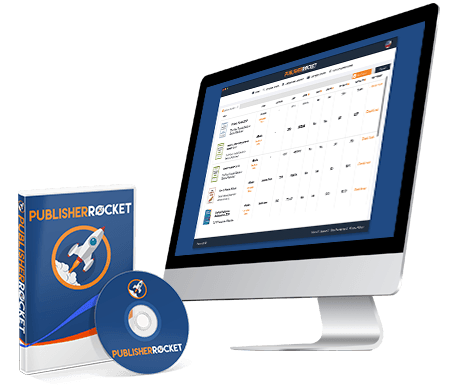
 Reedsy
Reedsy


